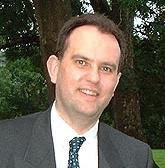Climate change is not far from the news headlines with the general consensus being that global warming must be stopped or even reversed in order to save the planet. But what is the truth about global warming, and what should, or can be done to stop it?
The full article can be read here.
Conclusions
The evidence for man made global warming is equivocal, but it is considered likely here that a growing and developing global human population is having some impact on global temperatures. Another cause may be solar changes. But evidence from the fossil record shows that carbon dioxide levels and the average global temperature were significantly higher in the past, and in such a climate the environment thrived with an abundance of life throughout the ecosystem. Environmentalists need to address this evidence from the fossil record, which at present is largely ignored.
It can be shown that higher carbon dioxide levels lead to higher primary production and therefore higher crop yields with benefit to the global economy and global ecosystem. The natural environment is shown to have adapted to climate change in the past and this is true for whatever time frame is applied to the fossil record. The current increase in levels of atmospheric carbon dioxide fall within historic levels and should not be considered unnatural. But creationists recognise that the climate is now markedly different and direct comparisons with the past are problematic due to likely differences in the way the atmosphere responds to changes in carbon dioxide levels today compared to the pre-Flood period.
The main problems to address then are the ways in which climate change will affect human society. The greatest risk is that climate change may cause some major problems around the world with more severe and unpredictable weather, together with the risk of changes in sea level, but the latter is considered an unrealistic risk at present. However, by tackling the problem of global warming by forcing developing nations to slow or stop their development will have a negative impact on poverty reduction in the poorest nations. Developing nations have a right and duty to utilise their natural resources and reduce poverty, but within environmental constraints. Trying to restrict access to natural resources may well hinder the social development of some of the poorest countries, which would be morally wrong.
Calls to reduce carbon use are not based on the reality of historic carbon dioxide levels, nor are they based on the reality and needs of present day human population growth, but seem to have more to do with the ‘hot air’ of environmentalists and politicians keen to jump on the latest bandwagon.
The response to these social problems then should be to spend more on the development of mitigation strategies especially as a growing global population and growing prosperity will provide the resources to help protect against natural weather related disasters. A good proportion of the cost of this should be born by the developed nations and there is a need for fairness in use of natural resources and in terms of the cost of protection against adverse weather and climate. If there are effective ways of reducing human dependence on fossil carbon-based fuels without excessive taxation and damage to the global economy then these should be implemented, with such technological know how also transferred to the developing nations for maximum benefit.
It can be shown that higher carbon dioxide levels lead to higher primary production and therefore higher crop yields with benefit to the global economy and global ecosystem. The natural environment is shown to have adapted to climate change in the past and this is true for whatever time frame is applied to the fossil record. The current increase in levels of atmospheric carbon dioxide fall within historic levels and should not be considered unnatural. But creationists recognise that the climate is now markedly different and direct comparisons with the past are problematic due to likely differences in the way the atmosphere responds to changes in carbon dioxide levels today compared to the pre-Flood period.
The main problems to address then are the ways in which climate change will affect human society. The greatest risk is that climate change may cause some major problems around the world with more severe and unpredictable weather, together with the risk of changes in sea level, but the latter is considered an unrealistic risk at present. However, by tackling the problem of global warming by forcing developing nations to slow or stop their development will have a negative impact on poverty reduction in the poorest nations. Developing nations have a right and duty to utilise their natural resources and reduce poverty, but within environmental constraints. Trying to restrict access to natural resources may well hinder the social development of some of the poorest countries, which would be morally wrong.
Calls to reduce carbon use are not based on the reality of historic carbon dioxide levels, nor are they based on the reality and needs of present day human population growth, but seem to have more to do with the ‘hot air’ of environmentalists and politicians keen to jump on the latest bandwagon.
The response to these social problems then should be to spend more on the development of mitigation strategies especially as a growing global population and growing prosperity will provide the resources to help protect against natural weather related disasters. A good proportion of the cost of this should be born by the developed nations and there is a need for fairness in use of natural resources and in terms of the cost of protection against adverse weather and climate. If there are effective ways of reducing human dependence on fossil carbon-based fuels without excessive taxation and damage to the global economy then these should be implemented, with such technological know how also transferred to the developing nations for maximum benefit.
